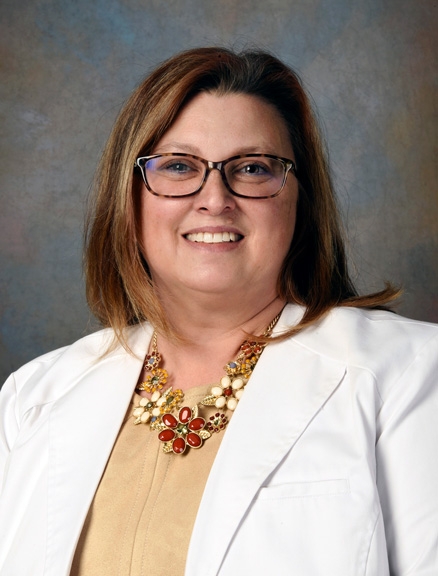Treating Aneurysms with FEVAR

Dr. Eva Rzucidlo
McLeod Vascular Surgeon
McLeod Vascular Associates
A treatment option for abdominal aortic aneurysms (AAA) is available at McLeod Regional Medical Center for patients unable to undergo the traditional method of treatment.
An aneurysm is an enlarged, balloon-like bulge, and weakened section of a blood vessel. The most common type of aneurysm is the abdominal aortic aneurysm. Most aneurysms occur in the aorta, the largest blood vessel that comes out of the heart and provides blood to the rest of the body.
If this condition is not treated the threat is the aneurysm will rupture. This danger increases with the size of the aneurysm and high blood pressure that is not well managed. Approximately 10,000 deaths occur each year in the United States due to abdominal aortic aneurysms, usually because of rupture.
Commonly patients with aneurysms never encounter symptoms. Those who do may experience: a pulsing sensation that feels like a heartbeat in the abdomen; sudden onset of intense pain in the abdomen, chest, or lower back; or an abdomen that has become stiff or rigid. The pulsing sensation is not usually noticeable by the patient but detected by a physician during a routine physical exam. About 30 percent of aneurysms are discovered in this manner.
Risk factors for aneurysms include age (60 years of age and older), high cholesterol, smoking, high blood pressure, blood vessel disease in another part of the body and, most importantly, a close relative with a history of abdominal aortic aneurysm. Research indicates that men develop abdominal aortic aneurysms four to five times more than women. Also, Caucasians more commonly develop abdominal aortic aneurysms than other races.
The traditional surgical treatment method involves sealing off the aneurysm with the placement of an endovascular graft stent. This stent is a fabric covered metallic scaffold that is inserted into the aneurysm to protect it from bursting or continuing to grow. This procedure is performed through two small injections in the groin area. The endovascular method works when the aneurysm is located far enough from the kidney arteries, which branch off the aorta, so the stent can be securely attached to the aorta.
For patients who are not a candidate for the traditional endovascular method of treatment for abdominal aortic aneurysms, a minimally invasive option is available at McLeod Regional Medical Center. Fenestrated endovascular aortic repair (FEVAR) is a form of endovascular surgery using a custom-designed graft.
When an aneurysm is located near an organ such as the kidneys there often isn’t much room for the vascular surgeon to attach the graft. FEVAR makes it possible to treat the aortic aneurysm that had been formerly inoperable.
To create the custom designed graft for the FEVAR procedure, a computed tomography (CT) scan of the aorta is made. The graft is designed with holes (fenestrations) that correspond to the unique positioning of the arteries in the body that branch off from the aorta to the kidneys, small bowel and liver.
Because an aneurysm involves the major blood vessels from the aorta that feed the kidneys, intestines and liver, the stent graft from the traditional method cannot be used as they block the blood flow to the organs.
Once the fenestrated endograft is implanted inside the aneurysm, blood can flow through the diseased area without putting pressure on the aneurysm, and the holes in the graft allow blood flow to continue to the vital organs. This procedure is also performed through a two-inch incision in the groin area.
For ten percent of patients with an abdominal aortic aneurysm, the aneurysm is too close to the kidneys for the traditional treatment to work making the aneurysm complicated to treat. Now thanks to the FEVAR method there is a possibility.
Free Aneurysms Screenings Available
In 2006, the SAAVE act was passed by Congress which allows men age 65-70 who have ever smoked to an Ultrasound Screening for Aneurysms through Medicare. This was later expanded to include woman greater than 70 who smoke and have a family history of aneurysms. The ultrasound screenings are available at McLeod Vascular Associates office in Florence and Hartsville. For more information please call (843) 777-7043.
Bio: Dr. Eva Rzucidlo is a board certified vascular surgeon with additional vascular research fellowship training. Dr. Rzucidlo cares for patients at McLeod Vascular Associates in Florence, and Hartsville. Appointments with Dr. Rzucidlo can be made by calling (843) 777-7043.
-
McLEOD REGIONAL MEDICAL CENTER FLORENCE
843-777-2000 -
McLEOD DARLINGTON
843-777-1100 -
McLEOD DILLON
843-774-4111 -
McLEOD LORIS
843-716-7000 -
McLEOD SEACOAST
843-390-8100 -
McLEOD CHERAW
843-537-7881 -
McLEOD CLARENDON
803-433-3000



-
McLEOD REGIONAL MEDICAL CENTER FLORENCE
843-777-2000 -
McLEOD DARLINGTON
843-777-1100 -
McLEOD DILLON
843-774-4111 -
McLEOD LORIS
843-716-7000 -
McLEOD SEACOAST
843-390-8100 -
McLEOD CHERAW
843-537-7881 -
McLEOD CLARENDON
803-433-3000
 Find a Doctor
Find a Doctor  Locations
Locations  Services
Services